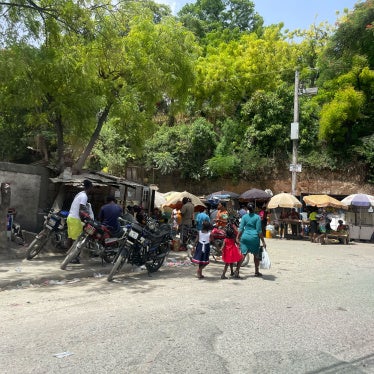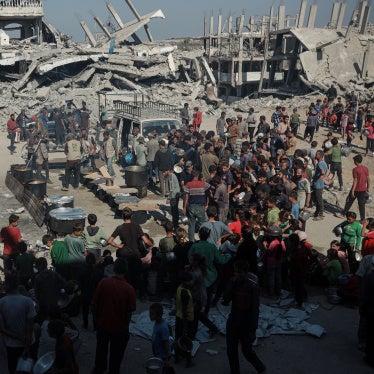(New York) - The UN Security Council's decision on December 16, 2010, to shame publicly the armed groups that target women for sexual abuse is a tremendous step toward ending this horrendous practice, Human Rights Watch said today.
As it started a day-long debate on rape in war, the council unanimously adopted a resolution that calls for annual publication of a list of armed groups proven to engage in deliberate campaigns of sexual violence. The resolution spells out steps the perpetrators must take to end the practice and avoid future shaming, and makes clear that using rape as a weapon of war can lead to sanctions.
"Victims of rape have waited a long time for the Security Council to take concrete action and call out persistent perpetrators," said Marianne Mollmann, women's rights advocacy director at Human Rights Watch. "Today is a big day for women worldwide."
Over the past year, the Security Council has stepped up its attention to sexual violence in war, including creating a new senior post to lead the United Nations' response to rape in war, and authorizing the existing Security Council working group on children in armed conflict to gather and publish information about rape committed against children. The new resolution ensures that this concern applies to adult women too.
"Today's resolution eliminates an artificial divide between the Security Council's concern for rape victims who are under and over age 18," Mollmann said. "But more than that, it is providing the international community with an additional tool to offer justice to thousands of victims of wartime rape."
Experience shows that a Security Council resolution rarely is effective unless it is backed up with adequate funding and political will to ensure its implementation, Human Rights Watch said. In February, Margot Wallstrom of Sweden was appointed special representative to the secretary general on sexual violence in conflict, a post created by the Security Council in 2009. However, Wallstrom has been operating on a shoestring budget throughout 2010, borrowing staff from other parts of the UN system, and has told reporters that she at times received information critical to her mandate late.
"We certainly hope the system put in place today will be fully supported by all UN member states, both financially and politically," Mollmann said. "No country should want to stand out by saying that ending rape in war really isn't all that important."








